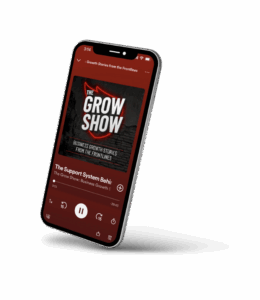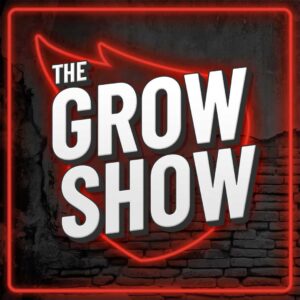Contents
What is B2B Market Research?
B2B market research involves gathering data about businesses rather than individual consumers. Companies use this information to understand market demand, target audiences, industry trends, and competitive positioning. B2B market research can include interviews, surveys, focus groups, and data analysis, all with the goal of learning how to best meet other companies’ needs.
When thinking about B2B market research, it’s helpful to remember that businesses make decisions differently from individual consumers. Businesses are often more rational in their decision-making and look for products or services that improve operations or bottom lines. Understanding these specific motivations is key to effective B2B marketing.
B2B vs. B2C Market Research: Key Differences
The core difference between B2B and B2C market research lies in the target audience. B2B research focuses on companies, while B2C research targets individual consumers.
Decision-Making Process
B2B market research must address a longer and more complex buying process. In B2B scenarios, buying decisions usually involve multiple stakeholders—from users to decision-makers to finance teams. In contrast, B2C buyers often make decisions independently or with minimal input from others.
Purchase Motivation
B2B buyers focus on return on investment (ROI), productivity gains, or solving specific business problems. They seek value and often need proof that a solution will solve an issue before committing. B2C customers, on the other hand, tend to be driven by emotional appeal, brand loyalty, and convenience.
Relationship Focus
Long-term relationships are at the center of B2B transactions. B2B market research often uncovers opportunities to develop strategic partnerships and tailor offerings. In contrast, B2C relationships may be more transactional and focused on satisfying immediate needs.
Benefits of Conducting B2B Market Research
B2B market research helps companies make informed business decisions. Here are some significant benefits:
Understanding Market Demand
Conducting B2B market research allows you to gauge demand for your product or service. It helps identify market gaps that can be filled and verifies whether your offerings match current needs. Businesses use this research to uncover opportunities for expansion or adaptation.
Competitive Advantage
Market research helps you understand your competition. By analyzing competitors’ strengths and weaknesses, your business can identify opportunities to stand out. This competitive intelligence is vital for strategic positioning in the marketplace.
Tailored Marketing Strategies
B2B market research can reveal what resonates most with your target businesses. Knowing specific pain points and decision-making factors helps tailor messaging that speaks directly to prospective clients. The more precise your approach, the better your chances of success.
Better Product Development
By directly engaging with your target market, you can better understand which features or improvements matter to your customers. This helps guide product development and ensures your solution genuinely addresses industry pain points.
Gain a competitive edge by leveraging B2B market research to connect with key decision-makers. Abstrakt’s expertise helps you gather relevant data, refine your strategy, and unlock real growth. Let us guide your success—explore our services now.
B2B Market Research Strategies
Different approaches to B2B market research provide varied insights. Let’s look at several effective strategies and weigh their pros and cons.
Surveys
Surveys are a common strategy in B2B market research. They help you gather quantitative data, such as preferences or satisfaction levels, from a large number of respondents.
Pros
- Cost-effective and easy to distribute to a large audience.
- Provides measurable, numerical data that are useful for analysis.
Cons
- Low response rates can be a challenge, especially when reaching out to higher-level decision-makers.
- The data lacks the context that qualitative research provides.
Interviews
Interviews offer an opportunity for in-depth exploration of topics with key stakeholders. They can take place over the phone, online, or in person and help capture insights directly from decision-makers.
Pros
- Provides rich, detailed information.
- Allows for follow-up questions and clarifications to dig deeper.
Cons
- Time-consuming and potentially costly.
- Data is more difficult to analyze compared to quantitative methods.
Focus Groups
Focus groups involve gathering a group of people from target businesses to discuss specific topics. The conversations reveal attitudes, perceptions, and feelings about your product or market.
Pros
- Generates in-depth discussions and reveals multiple viewpoints.
- Participants may spark ideas from each other, producing deeper insights.
Cons
- Scheduling groups can be difficult, and participant engagement can vary.
- Some voices may dominate the discussion, skewing the data.
Secondary Research
Secondary research involves gathering and analyzing existing data, such as industry reports or competitor information. This is useful for understanding broader market dynamics and trends.
Pros
- Quick and relatively inexpensive since data already exists.
- Useful for getting an overview of the industry and identifying potential areas of interest.
Cons
- Information may not be specific to your needs or target audience.
- Data may be outdated, leading to irrelevant insights.
Social Listening
Social listening involves tracking discussions on social platforms, forums, or industry blogs to gain insight into how businesses perceive certain issues or competitors.
Pros
- Captures candid feedback from a broader audience.
- Provides real-time insights into trending topics and brand perceptions.
Cons
- Social chatter may not always come from your target decision-makers.
- The data may lack depth and context compared to direct interviews.
Using B2B Market Research to Drive Results
The purpose of B2B market research goes beyond collecting data. The real value lies in applying the insights to improve marketing, sales, and overall business strategies.
Identifying Target Accounts
Once you gather data about the companies you want to serve, you can create target account lists. Segment your market by size, industry, and business needs. This segmentation allows you to focus on the accounts most likely to benefit from your product or service.
Tailoring Your Messaging
The results of B2B market research should be used to craft specific marketing messages that address your target audience’s key pain points. Effective messaging should show how your offering solves problems, drives productivity, or creates efficiency.
Optimizing Sales Processes
Research findings can also identify gaps in your sales processes. Perhaps your target businesses prefer a specific type of outreach, or they value certain information that isn’t currently included in your pitch. These insights can help your sales team refine their approach, ultimately leading to higher conversion rates.
Informing Product Development
B2B market research can help uncover product features that will set your offering apart. Use this research to guide your product development team, ensuring the features you add align with what businesses truly need.
Key Takeaways
B2B market research targets businesses and involves understanding a complex decision-making process with multiple stakeholders. Unlike B2C, B2B buyers focus on ROI, efficiency, and productivity, requiring tailored messaging. Companies can gather comprehensive insights using a mix of surveys, interviews, focus groups, and social listening. The key value lies in applying these findings to enhance marketing, sales strategies, and product development, driving business growth.
B2B market research can be the game-changer your business needs, helping you connect with decision-makers and position your solutions effectively. If you’re looking for an experienced partner to guide you through this process, Abstrakt has the tools and expertise to help you succeed. Reach out today and let’s get started on creating a winning strategy together.

Madison Hendrix
Madison has worked in SEO and content writing at Abstrakt for over 5 years and has become a certified lead generation expert through her hours upon hours of research to identify the best possible strategies for companies to grow within our niche industry target audiences. An early adopter of AIO (A.I. Optimization) with many organic search accolades - she brings a unique level of expertise to Abstrakt providing helpful info to all of our core audiences.
- Madison Hendrix#molongui-disabled-link
- Madison Hendrix#molongui-disabled-link
- Madison Hendrix#molongui-disabled-link
- Madison Hendrix#molongui-disabled-link







